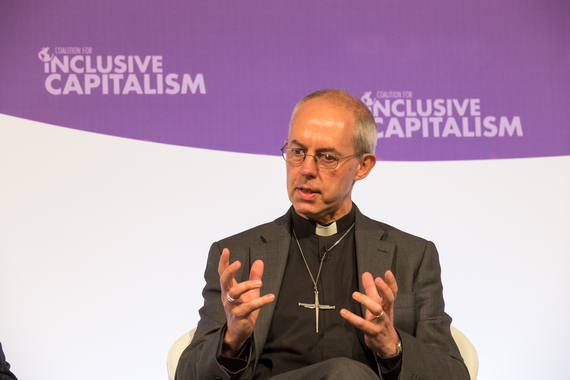The concept of inclusive capitalism and the associated idea of inclusive growth are about a fundamental recalibration of our understanding of the purposes of capitalism and wealth creation. For me, this recalibration is about an active pursuit of the common good through our economic system, in which all can flourish; and it is about instilling a deep and real sense of solidarity within the economy.
Inclusive capitalism is about reconnecting wealth creation and social justice -- not only encouraging companies to pursue a corporate social responsibility program, but about challenging and supporting them to pursue a culture and a business model that has at its heart a deeply rooted understanding of the common good.
The foundations of an inclusive system are given in our nature as human beings. The virtues of creativity, gratuity, solidarity and subsidiarity are fundamental to the pursuit of inclusive capitalism.
Creativity is a gift from God -- making things, including money, is a good thing and vital for the modern economy. Inclusive capitalism is about ensuring this creativity is used for the benefit of all.
Gratuity -- an inclusive economic system includes a spirit of generosity that does not seek the maximisation of return, or every transaction to be carried out on a basis of exchange and equivalence. Rather, it recognises that within the economy there will be some who experience abundance and some who lack.
Solidarity and subsidiarity are the means by which the risks of creativity are managed and encouraged. Solidarity -- an ancient and deeply theological concept -- is about reimagining our economic landscape so that no one is left out or left behind. It is concerned with how we value people and communities so that no one is deemed surplus or marginal.
Capitalism based on the principle of subsidiarity is therefore one in which there is a strong awareness of who does what best and collaborative working between different elements of the economy to enable the flourishing of all. It is a decentralized and accountable system that gives space for creativity at all levels of society.
Inclusive capitalism should be fair; it should be generous; and it should be sustainable. Without these principles, it will continue to exclude people and parts of society that it has the ability to impact in a very positive way.
Through creativity, gratuity, solidarity and subsidiarity, our economic system can become far more inclusive, so that all can share in its benefits. It is a system that works for the common good and the flourishing of each and every person in society.

